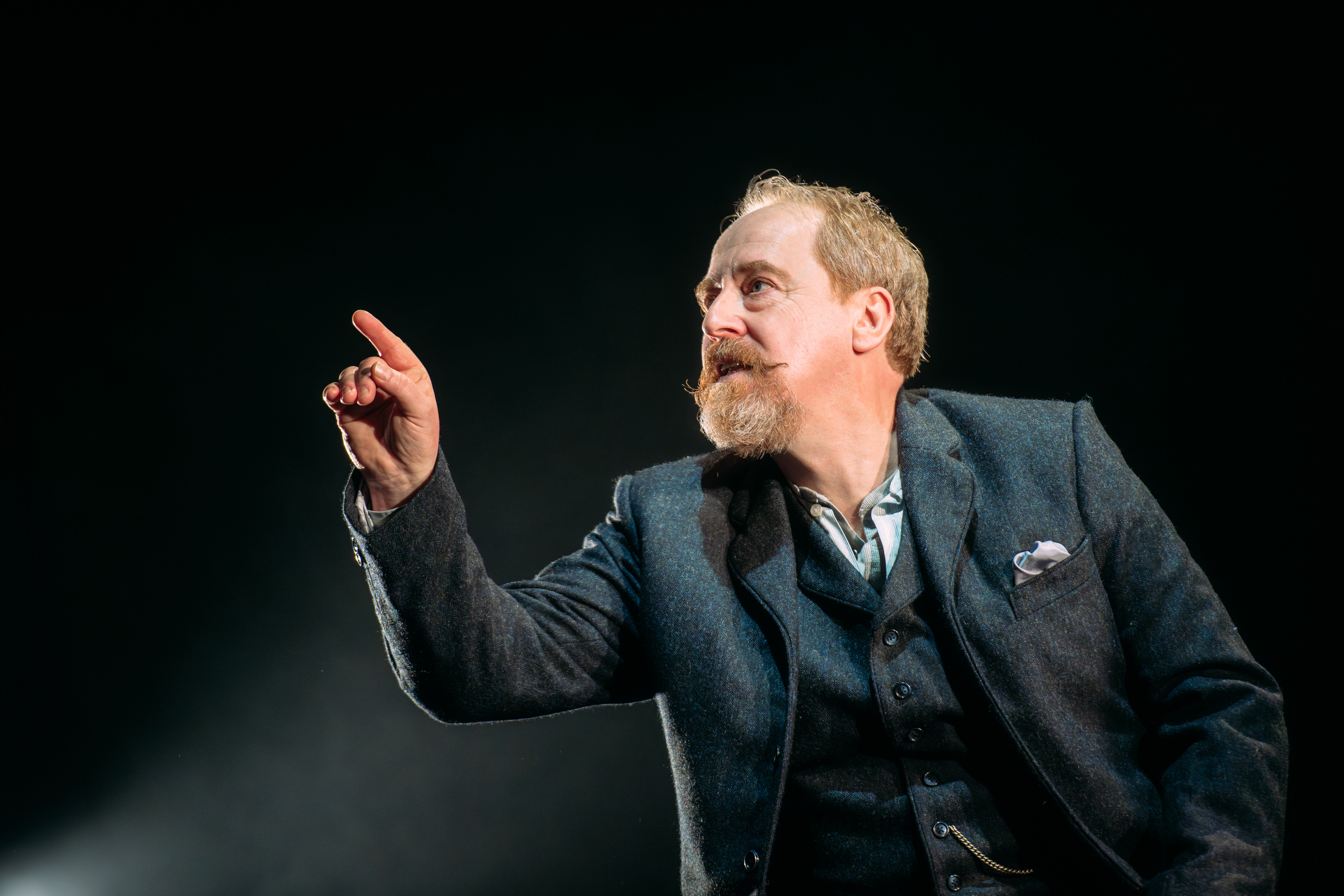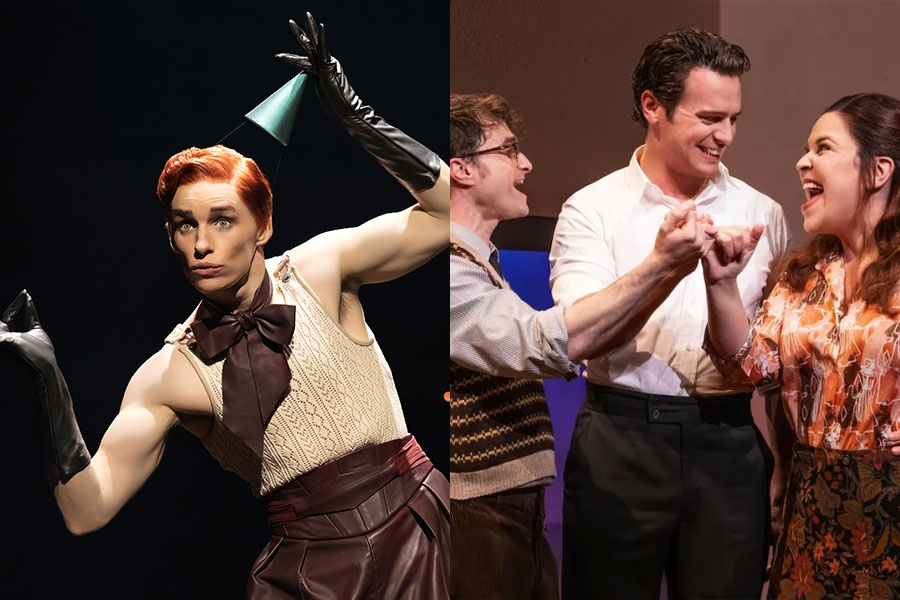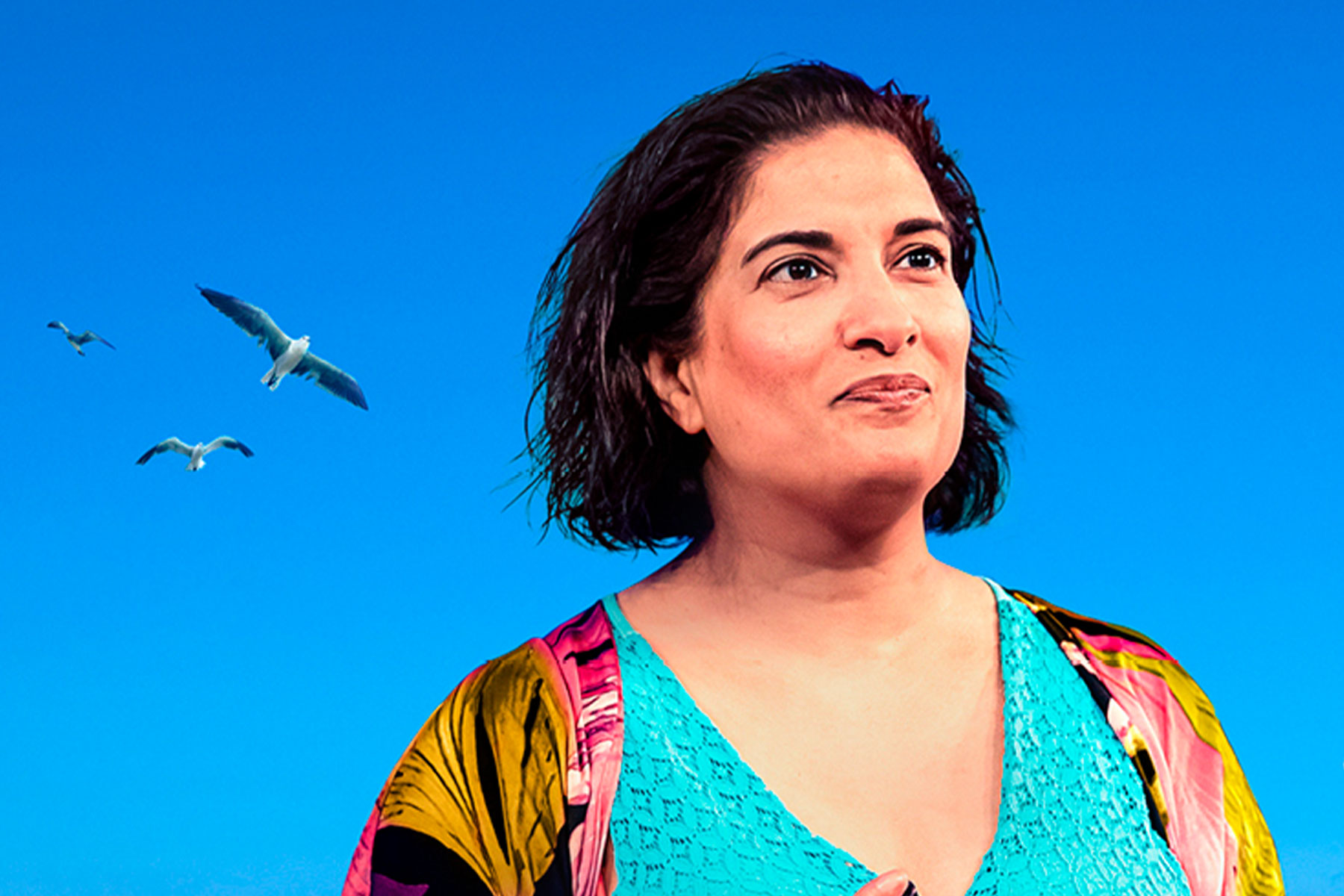James V: Katherine at The Studio in Edinburgh and on tour – review

The first four of Rona Munro’s ‘James Plays’ were brought to birth on the huge stage of the Edinburgh Festival Theatre, but James V: Katherine gets its premiere on the titchy stage of the adjacent Studio theatre. Part of that is surprising because this is the first of the plays that deals with the mighty topic of religion. James V’s reign was when the reformation first arrived in Scotland, and at the centre of the play is an analysis of the impact this huge social change has on the lives of individuals.
In another way, however, the small stage is very appropriate, because this play is even more directly about love and intimacy. More specifically, it’s the queer love story of Katherine Hamilton for her sister-in-law, Jenny Spottiswoode. In 1528, Katherine’s brother and Jenny’s husband, Patrick Hamilton, became the first man in Scotland to be burned alive for the crime of believing in Protestant heresy, and Munro’s play plunges bravely into the political and personal cauldron that this brings to boil in both personal relationships and political change. The historical evidence for the queer love story might be scant, but when did any playwright let that get in the way of a good story?
The historical canvas isn’t always handled confidently. Plays about history or politics have to tread very carefully the line of handling the issues and telling the story, and the opening scene walks a particularly awkward path between weighty themes of marriage, faith and death. As the plot progresses, more themes and ideas are layered over the narrative than the material is able to easily support.
For the most part, however, Munro wisely sidesteps the issues in favour of letting the drama unfold, and when the human story takes off, it really gets going. That’s mostly thanks to the characters, all of whom are distinctively drawn by the company of only four actors. Catriona Faint plays Katherine with a hard edge and a big attitude. She balances the vulnerability of the love scenes with a take-on-all-comers performance in the courtroom scene, though her journey of faith is drawn in extremes and struggles to be believable. Jenny, on the other hand, is played with gentle passion by Alyth Ross, who can either disappear into the background or take centre stage as the story requires. Benjamin Osugo plays both the extreme Protestant Patrick and the extreme Catholic prosecutor at the trial. If he does them both a little woodenly then you can just about forgive that considering the nature of their fanatical personalities. Sean Connor steals both his scenes as the constable who arrests Katherine and as King James himself, who intervenes in the trial to procure a particular outcome.
The play pivots around that intervention, and so the final scene feels a bit deflated as a result, the script rattling through several issues as though they have to be touched on again before we get to go home. It resolves the piece capably enough though and, taken as a whole, the script’s successes outweigh its problems. Orla O’Loughlin’s compact direction and Becky Minto’s persuasive designs fit the little performance space while allowing the story to breathe, something that will be important as it tours lots of venues around Scotland.












